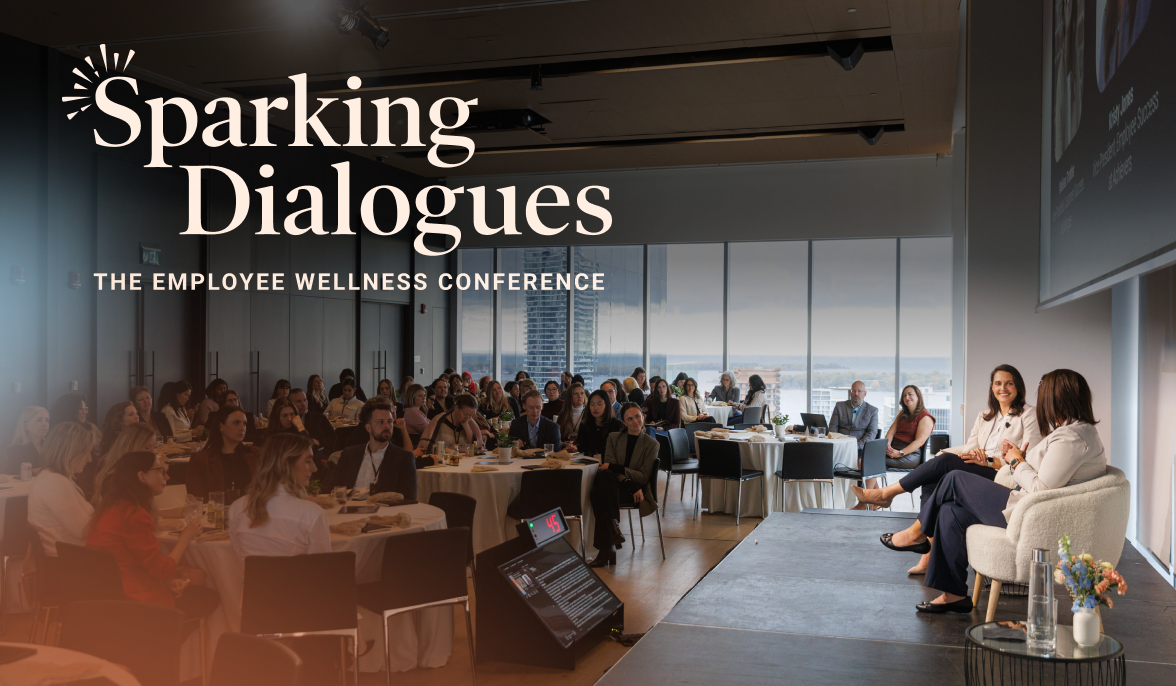Most organizations encourage people to take time off, but don’t require it. This means that too many employees finish the year with vacation days still in the bank – less 1 in 3 workers used all their vacation days in 2024! But that’s not all. Despite benefiting from flexible and robust time-off policies, 2 out of 3 remote and hybrid workers actually report they have a hard time disconnecting from work.
From mental health days to vacation purchase plans, employees have more time-off options than ever. But as long as those options aren’t being used, well-being is left on the back burner. Here’s a reminder of how time off benefits your organization and your team.
-
It reduces the risk of mental health issues. Risk of stress and burnout increases after 2 months of work with no time off. This can lead to more serious physical and mental health issues for employees, and organizational challenges like absenteeism, presenteeism, and more leaves of absence.
-
It improves motivation and productivity. 64% of people say that they feel re-energized and excited to return to work after vacation. They also report having the ability to get more done with less effort.
-
It fosters a more diverse workplace. When employees are empowered to take time off as needed, they’re more likely to be their authentic selves: people can celebrate religious holidays, tend to their mental health, or take on childcare duties. Having a flexible and open time-off policy also attracts a more diverse workforce with different daily needs.
-
It reinforces a positive culture. When people feel that their managers care about their well-being, it can build loyalty and boost retention. In fact, 60% of employees who feel cared for plan to stay with their employer for 3 years or more. This number drastically drops to 7% for those you don’t feel cared for.
How to ensure employees use all their time off
Establish a no-questions-asked policy.
Employees may need or want time off for a variety of reasons, from dream vacations to family emergencies. As a leader, why someone chooses to take time off shouldn’t matter. In fact, a Canada Life study found that 20% of employees are ashamed to take time off for mental health reasons. A no-questions-asked policy means that your team members will be more likely to disconnect from work, without worrying about how they’re perceived.
Encourage leaders to fully unplug.
We’ve often reported on the fact that too many employees are ready to switch jobs in search of better well-being. But a recent study found that an astonishing 69% of C-suite executives are also considering making the jump! While leaders are often the drivers of employee well-being, they’re increasingly putting their own mental and physical health first. Indeed, 81% are more interested in prioritizing their well-being than advancing their careers.
Ensuring that higher-ups take time off to tend to their health is crucial. Not only does it model optimal self-care behaviours, but it also allows them to effectively continue building, driving, and promoting well-being for other team members.
Ensure workload coverage.
A common reason why employees leave vacation days on the table is fear or guilt related to workload. Will something fall through the cracks while they’re away? Will they forget to do something crucial before they leave? These concerns not only prevent some people from taking time off, but may also keep them from fully disconnecting while on vacation. Checking emails and answering messages might seem like go-getter behaviour, but it’s often fuelled by guilt, people-pleasing, and perfectionism. Here are a few ways to help them enjoy their time off, worry-free:
-
Make sure other team members have access to necessary files, folders, and tools.
-
Consider automating or scheduling certain tasks, if possible.
-
Adopt a project management tool, so everyone knows who’s working on what and how a project is moving along.
-
Schedule pre-vacation chats to get a clear understanding of what your team member is working on, and how you plan to support while they’re gone.
Consider company-wide time off.
Another way to combat vacation guilt is by giving all employees a chance to disconnect together. In 2021, Hootsuite closed its office doors for an entire week, in an effort to help employees recharge after a challenging period in the first half of the pandemic.

*Because we also care about our members and their families, Dialogue’s care professionals remain available 24/7 throughout the holidays.
Whether you implement an annual company-wide week off, summer Fridays, or an impromptu break after a busy quarter, having all employees unplug at the same time can help them do so without the guilt.
Rethink your vacation rollover policy.
We’ve all hoarded our vacation days for the “right moment”, particularly over the last few years, when international travel was challenging. Is it really worth using your time off now, if you can save it for a bigger adventure next year? While using time off for things we love is important, it’s also essential to acknowledge that taking regular breaks supports well-being and boosts productivity. So if you have a flexible vacation rollover policy, consider limiting how many days can be carried over to encourage employees to use their time off every year.
Schedule vacation balance reminders.
When stress levels are high and our calendars are full, we might not know how many vacation days are actually left in the bank. Most people don’t have the habit of checking their vacation balance, which makes it easy to overlook. By sending monthly or quarterly reminders, you can encourage employees to take time off more regularly, even if it simply means tagging an extra day onto a long weekend.
How Dialogue can help prioritize well-being
Beyond a flexible and open time-off policy, there are other essential ways in which you can support your organizational members with their wellness: from understanding employee needs to offering benefits they actually care about.
To minimize common workplace issues, like absenteeism, Canadian employers trust Dialogue to bring quality virtual physical and mental health care to employees. Now, we’re ready to expand our Integrated Health Platform to provide even more complete well-being support. Curated by behavioural scientists and vetted by our clinical team, our upcoming Wellness program empowers all members to proactively adopt healthy habits – regardless of their health and fitness level.
Get a first look at how our new Wellness program can help employees and their families lead a healthier, more active lifestyle, all while preventing and managing well-being issues.
Sources:
-
Remote Workers Report Negative Mental Health Impacts, New Study Finds
-
This Is How Often You Should Be Taking a Day Off, Experts Say
-
Retention soars when employers show workers they care, study finds
-
One in five workers ‘embarrassed to take time off for mental illness’
-
Hootsuite Is Shutting Down The Entire Company For A Full Week




 Canada (EN)
Canada (EN)
 Global (EN)
Global (EN)








